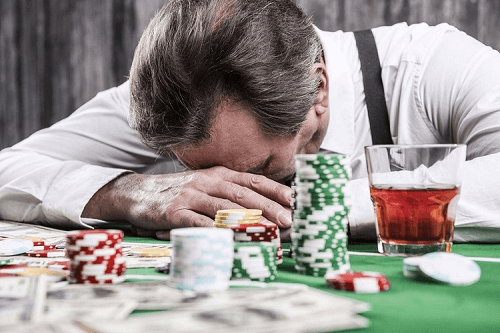Sylvia Key | June 2, 2023 | Updated on: February 1st, 2024
Many Australians find pleasure in playing pokies and casino games, considering them a leisure activity. However, there are individuals who struggle to maintain control over their gambling habits. When gambling stops being enjoyable and starts causing harm, it may indicate the presence of a gambling addiction or problem.
To assist you in recognizing the signs of a gambling addiction, understanding its causes, and providing guidance for self-help or support for someone you know, our team of experts has crafted this comprehensive guide.

What is a Gambling Problem
The addiction to casino games bears resemblance to other impulse-control disorders, where individuals struggle to exert control over their actions despite being aware of the harm it causes to themselves and others. Researchers have identified three common types of addictive gaming activities:
Compulsive Gambling:
Compulsive gamblers have little to no control over their gambling activities and continue to bet money regardless of the consequences. They often seek any opportunity to place a bet, even if they lack the means to pay for potential losses.
Binge Gambling:
Binge gambling may not be immediately evident, but it exhibits similar symptoms to compulsive gambling. Individuals in this category may appear to have control over their gambling activities for certain periods. However, once they start betting, they lose self-restraint and are unable to set limits.
Problem Gambling:
Problem gambling represents a less severe form of addiction compared to the previous types. While individuals in this category may not be compulsive gamblers, their gambling activities still lack control. They frequently chase their losses and struggle to refrain from taking excessive risks.
These types of addictions require serious attention and cannot be resolved independently. In such cases, seeking support and professional help is highly recommended.
Solution for Gambling Addiction
When it comes to addressing gambling addiction or problem gambling, there are various treatment options available. The most suitable approach depends on factors such as your location, age, life circumstances, and personal characteristics. Your support group or healthcare professional can provide guidance in determining the best treatment plan for you.
- Therapy and Counseling: Psychotherapy has demonstrated high effectiveness in treating gambling addiction. Mental health professionals can help identify underlying issues contributing to the problem and work on improving problematic behaviors. Often, the root cause extends beyond gambling itself, and therapists or counselors can develop a customized mental health care plan tailored to your individual needs. Initiating a conversation with your local GP is a good starting point, as they can assist in creating a plan and guiding you through the next steps.
- Medical Treatment: Although there are no specific medications designed solely for gambling addiction, certain medications such as antidepressants, anti-seizure medications, and selective serotonin reuptake inhibitors (SSRIs) may be prescribed. These medications aim to reduce the urge to gamble or manage the excitement associated with gambling.
- Group Support: Seeking support from group settings can be highly beneficial in combating gambling addiction. Alongside psychotherapy, sharing challenges and experiences openly with others who are going through or have overcome similar situations can be invaluable. Peer support can be particularly effective, especially for individuals dealing with mental health issues or feelings of loneliness.
Remember, treatment for gambling addiction is highly personalized, and it’s important to seek professional guidance to determine the most appropriate course of action based on your specific circumstances.
Tips to Stay Safe
- Self-exclusion – Stay away from online casinos for a specific period of time. This action will block your access to your account and allow you to evaluate how you cope without the ability to log in. It can be an effective way to take a break and assess your relationship with gambling.
- Use Blocking Apps – Utilize specialized applications that can block access to websites associated with casino gaming and betting activities. These apps provide an additional layer of support by restricting your ability to engage in online gambling.
- Seek Support – Share your struggles and experiences with others. Open up to those who are close to you, consider joining support groups, and connect with individuals who have faced similar challenges. Expressing your feelings and seeking support can be a crucial step towards recognizing the extent of the issue and finding encouragement.
- Seek Professional Help – Don’t hesitate to reach out to a doctor or psychologist for professional assistance and care. Seeking help is a common and commendable action. Professionals can provide guidance, therapy, and strategies to help you overcome gambling addiction.
Remember, seeking support and utilizing available resources are key steps in addressing gambling addiction. By taking these actions, you can regain control over your gambling habits and improve your overall well-being.